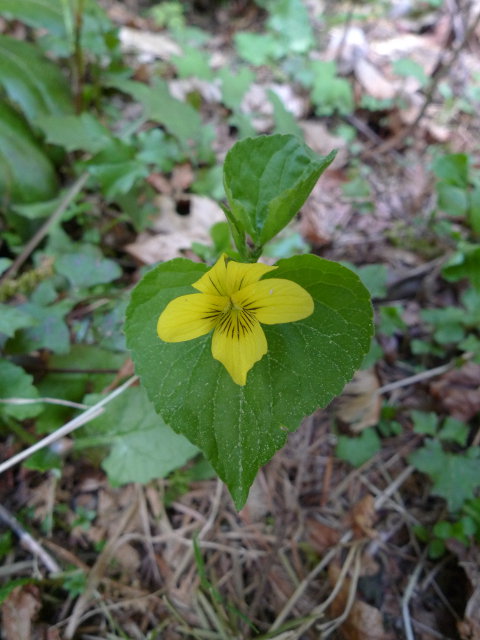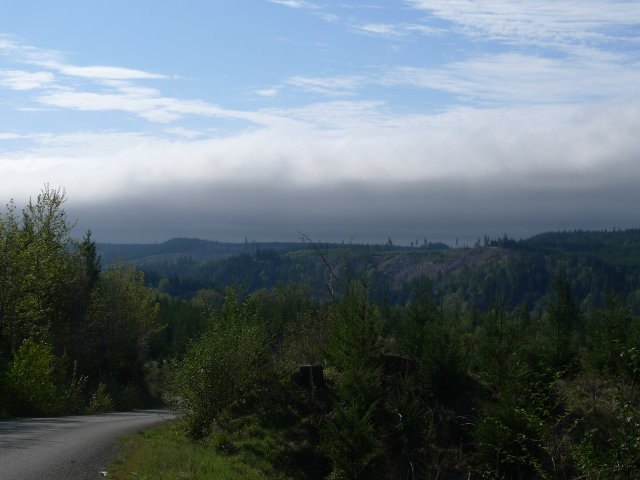Roses Are Red, Violets Are… Yellow?
Published at 07:51 on 29 April 2018
It doesn’t jibe with the traditional poem, but in this part of the world, violets are commonly neither blue nor violet in color. Our two most common species have yellow flowers.

The Evergreen Violet, Viola sempervirens, lives up to its name by having evergreen foliage; its rounded leaves persist through the winter months. It is a short plant, seldom more than 10 cm (4″) tall. All of its leaves and flowers are borne singly on stems arising from underground rhizomes; it has no above-ground stems that bear both leaves and flowers. It is commonly found on the floor of coniferous forests.

The Stream Violet, Viola glabella, is often found along streams and in other areas wetter than the Evergreen Violet prefers. It is usually more than 20 cm (8″) tall, bearing both flowers and leaves from above-ground stems. All above-ground parts of this violet die back in winter. This violet’s leaves are thinner and brighter green than the Evergreen Violet’s, and they come to a point at the end. The Stream Violet is most common in deciduous forests.
Like all violets, both of the above have edible flowers and young leaves. Of the two, I prefer the Evergreen Violet, because its flowers often taste delightfully of wintergreen.
The flowers being the reproductive part of a plant, one should not attempt to make a harvest of edible flowers of any sort unless a) the flowers are numerous, and b) the area they are being harvested from is lightly-used. Item (b) means that I do not snack on violets here on the Island much, because most of our wild areas simply get too many visitors to support the ethical harvesting of flowers. I concentrate my snacking on violet blossoms to the times when I take hikes in less used areas on the Olympic Peninsula.
Garden pansies and Johnny-jump-ups are also in genus Viola and are also edible.

